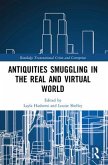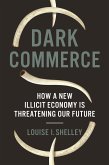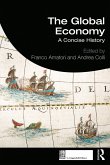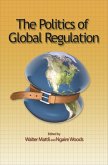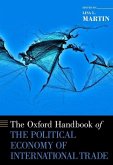This book meticulously examines how centers of illicit trade pose myriad threats to global security and sustainable development.
The exponential growth of illicit trade, resulting in annual losses amounting to trillions of dollars for the global economy, is increasingly concentrated within specific geographic areas. These locales serve as safe havens for smugglers and their accomplices, fostering a criminal ecosystem that facilitates the convergence of various criminal activities. The book underscores the detrimental impact of poorly regulated international free trade zones, which prioritize expediency over security, thereby allowing illicit trade to flourish in regions characterized by opaque governance and lax regulatory oversight. It comprehensively explores the spectrum of illicit trade present in notorious hubs such as the Argentina-Brazil-Paraguay Tri-Border Area, Dubai, Panama, Belize, Guatemala, and Ukraine. Emphasizing the phenomenon of crime convergence associated with these hubs, the book offers actionable recommendations for disrupting their interconnected illicit supply chains, infrastructures, and networks.
By addressing this interconnectedness, the book fills a critical void in understanding how vulnerabilities within the global economy fuel the creation of illicit trade hubs. It will be of great value to researchers in the fields of trade, economics, criminology, and international development. It will also be an excellent resource for government agencies, policymakers, and private-sector managers in those industries most affected by the growing problem of illicit trade.
The exponential growth of illicit trade, resulting in annual losses amounting to trillions of dollars for the global economy, is increasingly concentrated within specific geographic areas. These locales serve as safe havens for smugglers and their accomplices, fostering a criminal ecosystem that facilitates the convergence of various criminal activities. The book underscores the detrimental impact of poorly regulated international free trade zones, which prioritize expediency over security, thereby allowing illicit trade to flourish in regions characterized by opaque governance and lax regulatory oversight. It comprehensively explores the spectrum of illicit trade present in notorious hubs such as the Argentina-Brazil-Paraguay Tri-Border Area, Dubai, Panama, Belize, Guatemala, and Ukraine. Emphasizing the phenomenon of crime convergence associated with these hubs, the book offers actionable recommendations for disrupting their interconnected illicit supply chains, infrastructures, and networks.
By addressing this interconnectedness, the book fills a critical void in understanding how vulnerabilities within the global economy fuel the creation of illicit trade hubs. It will be of great value to researchers in the fields of trade, economics, criminology, and international development. It will also be an excellent resource for government agencies, policymakers, and private-sector managers in those industries most affected by the growing problem of illicit trade.


